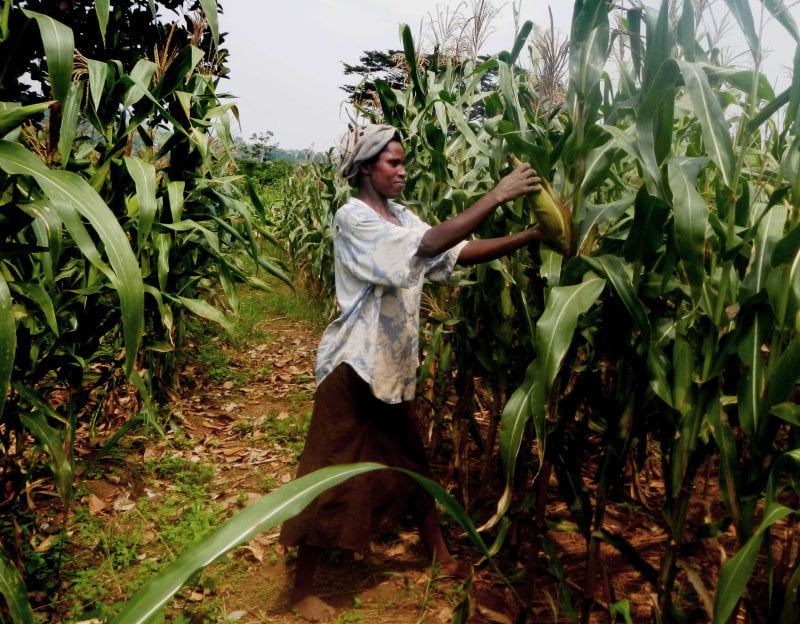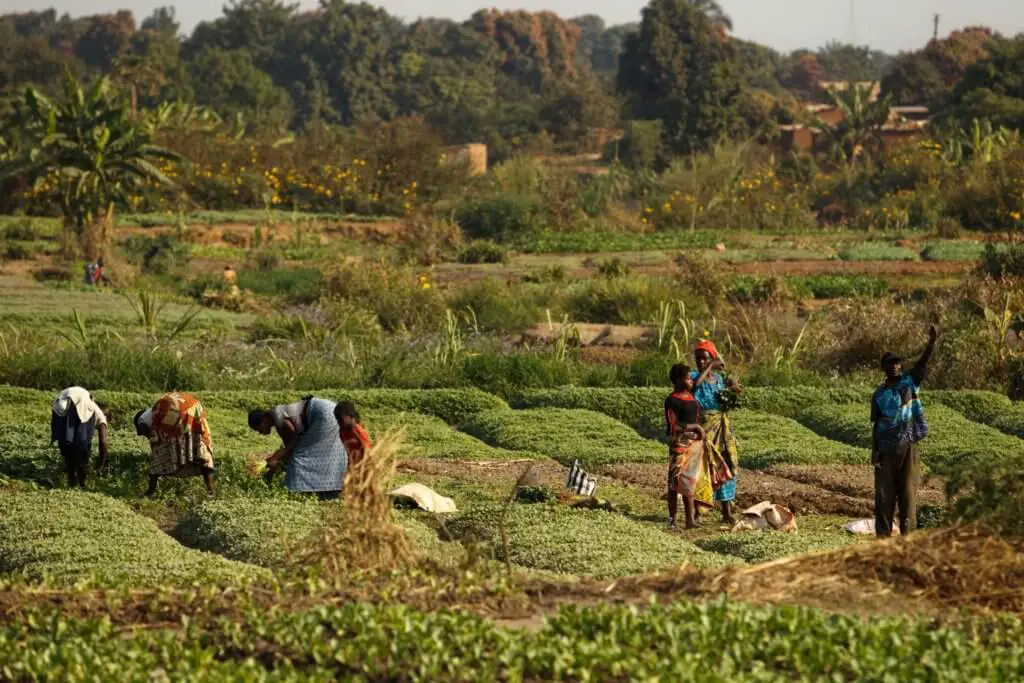Viewpoint: Agro-ecology agendas are trapping African farmers in poverty
Viewpoint: Agro-ecology agendas are trapping African farmers in poverty


That’s the finding of the first continent-wide meta-analysis of conservation agriculture experiments in Africa, and it threatens to completely up-end the dominant paradigm around agro-ecology.
In recent years, agro-ecology has come to be seen as a virtual panacea in sub-Saharan Africa. Aid agencies, churches, development NGOs and United Nations agencies all now tie their support for resource-poor farmers to an explicitly agro-ecological agenda.
NGOs are keen to offer anecdotal evidence for how these approaches can help smallholder farmers in Africa. Yet scientifically rigorous empirical evidence for the benefits of agro-ecology — also termed “conservation agriculture” — has so far been lacking.
Until now, with the publication of a paper titled “Limits of conservation agriculture to overcome low crop yields in sub-Saharan Africa” in the peer-reviewed journal Nature Food.
Scientists, who analyzed 933 observations across 16 countries in sub-Saharan Africa comparing conservation agriculture with conventional cropping, found that agro-ecological approaches do not substantially improve productivity and do not therefore help address the food insecurity of smallholder farmers.
This is not because conventional tillage-based farming is better than conservation agriculture — in fact, as these results show, they are equally bad — but because the advocates for agro-ecology also tend push an ideological agenda that rejects scientific innovations such as biotechnology, hybrid seeds, mechanization, irrigation and other tools that might more reliably increase productivity for smallholder farmers in Africa.
The study authors, led by Marc Corbeels, a specialist in sustainable intensification based at CIMMYT in Nairobi, Kenya, found that conservation agriculture did not improve yields in cotton, cowpea, rice, sorghum or soybean. Maize yields did show a 4 percent increase, but only if glyphosate pre-emergence herbicide treatments were applied, something which is strictly forbidden by agro-ecology advocates.
In practice therefore, agro-ecology is likely to have no benefits at all to most farmers in Africa.

In fact, it could even have negative effects. This is primarily because soil improvements from conservation agriculture require the use of crop residues as mulches. In dry conditions these can help retain moisture in the ground by reducing evaporation. However, crop residues are much more valuable to smallholder farmers as fodder for cattle and other livestock animals, which produce meat, milk and manure and are therefore much more important for safeguarding food security than a slight increase in maize yield. In the arid conditions of much of sub-Saharan Africa, there is simply no spare biomass to use in conservation agriculture.
This is not to say that no-till systems have no benefits anywhere in the world. In fact, reduced or conservation tillage approaches have been widely adopted across North and South America, where they help to reduce soil erosion, conserve moisture and sequester carbon. Indeed, most of the carbon benefits of genetically modified crops — which removed 24 millon tonnes of CO2 in 2016 — arise because herbicide tolerance traits allow farmers to adopt no-till practices.
These benefits, however, arise in capital-intensive mechanized systems, not in the subsistence agriculture that is mainly practiced in Africa. Without the use of herbicides, farmers in Africa adopting no-till have to weed by hand, a physically demanding task often performed in intense heat. Hand-weeding is also often seen as a woman’s task, aggravating gender inequality.
Discussing the new Nature Food paper, Katrien Descheemaeker from Wageningen University in the Netherlands (who was not involved in the study) writes: “The findings of Corbeels and colleagues refute the claims that CA [conservation agriculture] would substantially improve food security of smallholders in an environmentally and socially sustainable way.”
Descheemaeker adds that “small yield increases are meaningless at the farm level in terms of improvements in food self-sufficiency and income, mostly because of small farm sizes” and that Corbeels and colleagues’ results show that “the elimination of plowing on small farms would not lead to higher profitability (possibly aggravating gender inequality instead).”
She concludes that: “All of this indicates that CA should not be promoted on the grounds of its potential to improve crop yields and food security, and that focus should be shifted to a wider range of options to enhance the livelihoods of African smallholder farmers.”
It remains to be seen whether the charities, UN agencies and environmental NGOs that are so assiduous in promoting agro-ecology will accept this latest scientific data. If not, their continued efforts may worsen food insecurity and further aggravate gender inequality across sub-Saharan Africa, harming the interests of hundreds of millions of the world’s poorest people.
Mark Lynas is a British author, journalist and environmental activist who focuses on climate change. He is a contributor to New Statesman, The Ecologist, Granta and Geographical magazines, and The Guardian and The Observer newspapers in the UK; he also worked on the film The Age of Stupid. Find Mark on Twitter @mark_lynas
This article was originally published at Cornell Alliance for Science and has been republished here with permission. Follow the Alliance on Twitter @ScienceAlly

 | Videos | More... |

Video: Nuclear energy will destroy us? Global warming is an existential threat? Chemicals are massacring bees? Donate to the Green Industrial Complex!
 | Bees & Pollinators | More... |

GLP podcast: Science journalism is a mess. Here’s how to fix it

Mosquito massacre: Can we safely tackle malaria with a CRISPR gene drive?

Are we facing an ‘Insect Apocalypse’ caused by ‘intensive, industrial’ farming and agricultural chemicals? The media say yes; Science says ‘no’
 | Infographics | More... |

Infographic: Global regulatory and health research agencies on whether glyphosate causes cancer
 | GMO FAQs | More... |

Why is there controversy over GMO foods but not GMO drugs?

How are GMOs labeled around the world?

How does genetic engineering differ from conventional breeding?
 | GLP Profiles | More... |

Alex Jones: Right-wing conspiracy theorist stokes fear of GMOs, pesticides to sell ‘health supplements’




 California, Washington, Oregon forge immunization alliance to safeguard vaccine access against federal undermining
California, Washington, Oregon forge immunization alliance to safeguard vaccine access against federal undermining Trust issues: What happens when therapists use ChatGPT?
Trust issues: What happens when therapists use ChatGPT? Fighting deforestation with CO2: Biotechnology breakthrough creates sustainable palm oil alternative for cosmetics
Fighting deforestation with CO2: Biotechnology breakthrough creates sustainable palm oil alternative for cosmetics Viewpoint — Fact checking MAHA mythmakers: How wellness influencers and RFK, Jr. undermine American science and health
Viewpoint — Fact checking MAHA mythmakers: How wellness influencers and RFK, Jr. undermine American science and health 30-year-old tomato line shows genetic resistance to devastating virus
30-year-old tomato line shows genetic resistance to devastating virus The free-range chicken dilemma: Better for birds, but with substantial costs
The free-range chicken dilemma: Better for birds, but with substantial costs Viewpoint: Video — Big Solar is gobbling up productive agricultural land and hurting farmers yet providing little energy or sustainabilty gains
Viewpoint: Video — Big Solar is gobbling up productive agricultural land and hurting farmers yet providing little energy or sustainabilty gains ‘You have to treat the brain first’:Rethinking chronic pain with Sanjay Gupta
‘You have to treat the brain first’:Rethinking chronic pain with Sanjay Gupta
